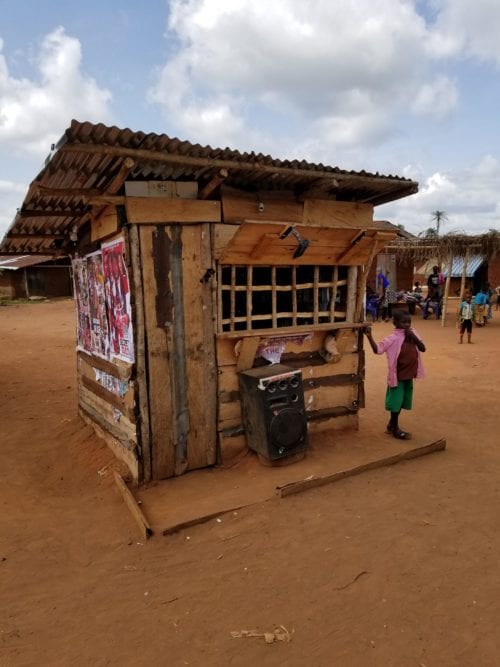
Energy without End-Use: New report shows demand-side barriers impede access despite rush to supply electricity
Lagos, Nigeria– October 29, 2018, Despite the rush to supply Africa with electricity, consumers and small rural businesses are being left behind in their ability to use electricity. A new Rocky Mountain Institute report released today addresses current market barriers for end-users, and showcases the value of investing in electricity demand projects in rural Africa.
In the past twenty years, development funding and energy targets have focused on gaining more supply of megawatts and connections rather than ensuring consumers and businesses can use electricity. For example, between 2000–2008 electricity supply expansion represented almost half of the $4 billion the World Bank approved for investment in energy access.
“Imagine running internet fiber to a community of homes that could not afford a computer. This is exactly like what is happening in many electricity access efforts in Africa today,” says Eric Wanless, Program Lead, Rocky Mountain Institute.
Currently, in rural Africa, minigrid companies and electricity distribution companies struggle for profitability, consumers and businesses struggle to use electricity. In Uganda, for example, more than half of the rural concession operators are not yet financially viable, and the average electricity usage is at 185 kWh per customer/year, significantly below the sub-Saharan African average of 485 kWh per capita. Customers cannot afford equipment and cannot afford the electricity to run them. Thus they use significantly less energy than the could be using, hampering economic development and leaving distribution companies serving such communities in a difficult spot. End-use stimulation is needed to bridge this gap.
The report, Closing the Circuit, Stimulating End-Use for Rural Electrification, showcases the value of investing in electricity demand, or end-use, offering key learnings for development partners:
- Develop financing mechanisms that help businesses and consumers better afford equipment, such as irrigation pumps, or switch from diesel-run equipment to electric, such as with flour mills
- Reduce power costs by resizing high capacity, minigrid power systems using electricity contracts with larger customers to sign up for electricity load before grid design
- Provide incentives to stimulate private sector sales of electric equipment to agricultural coops, using levers such as customer education roadshows, financial guarantees to equipment sellers, and bulk purchasing agreements
- Update national electrification programs and strategies so that demand considerations are key alongside supply expansion
“We believe there is an enormous opportunity for development partners, governments, and investors to focus effort on providing the financing and training needed to enable consumers to identify and afford energy efficient and productivity enhancing equipment alongside ongoing supply expansion efforts.” said Scarlett Santana, RMI Senior Associate and co-author of the report.
Rocky Mountain Institute works in sub-Saharan Africa to increase access to and the productive use of sustainable electricity. To date, the SEED program has worked with partners in Rwanda, Uganda, Sierra Leone, Nigeria, and Ethiopia. The program receives generous support from The Rockefeller Foundation, Virgin Unite, the Global Environment Facility, the United Nations Development Programme, Schneider Electric, and individual supporters.
Media Inquiries please contact:
Nick Steel, Senior Associate – Media Relations, T: +1 347-575-0887, E:nsteel@rmi.org
Notes to Editors
About Rocky Mountain Institute
Rocky Mountain Institute (RMI)—an independent nonprofit founded in 1982—transforms global energy use to create a clean, prosperous, and secure low-carbon future. It engages businesses, communities, institutions, and entrepreneurs to accelerate the adoption of market-based solutions that cost-effectively shift from fossil fuels to efficiency and renewables. RMI [i1] has offices in Basalt and Boulder, Colorado; New York City; Washington, D.C.; and Beijing.
More information on RMI can be found at www.rmi.org or follow us on Twitter @RockyMtnInst
